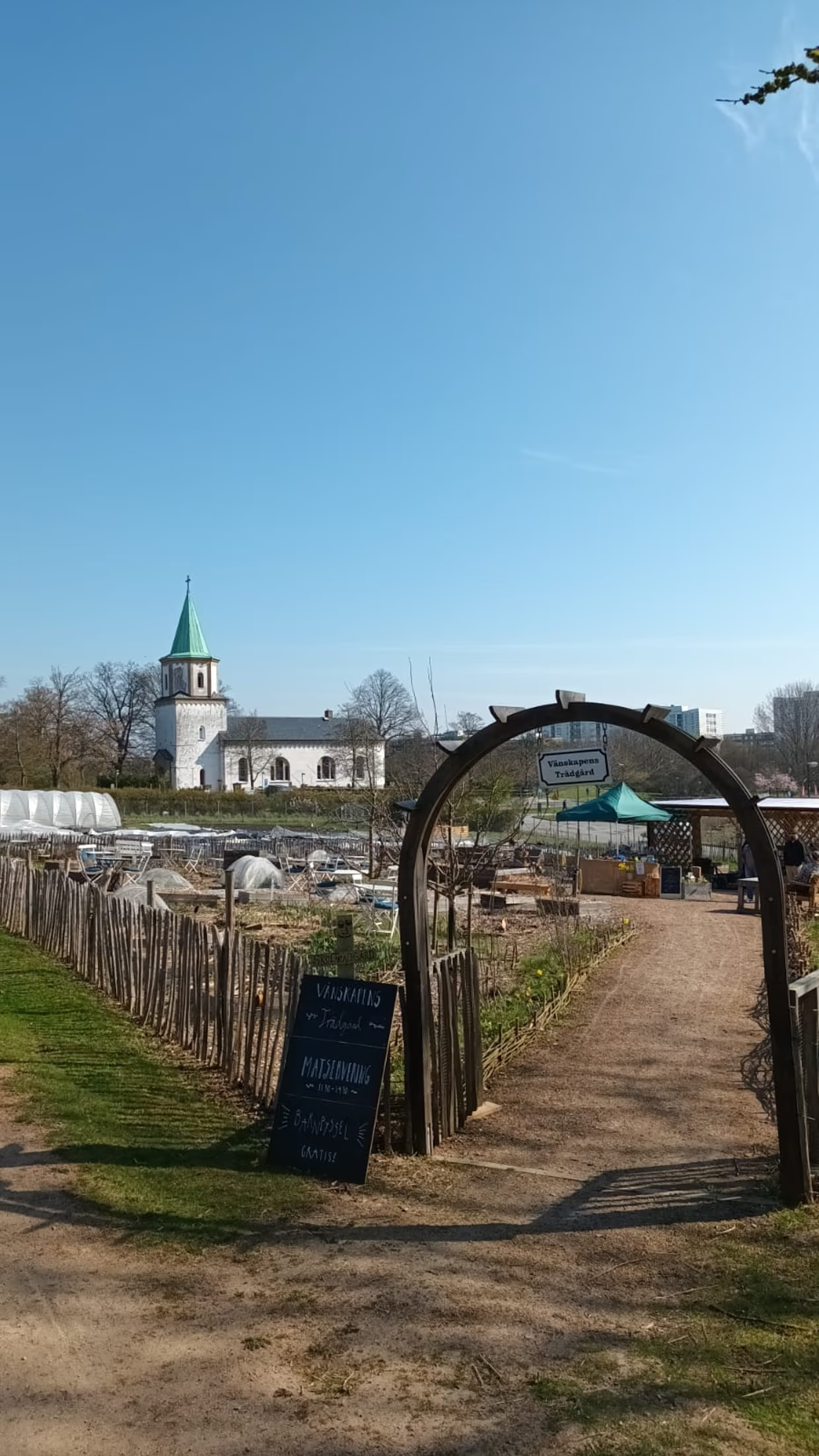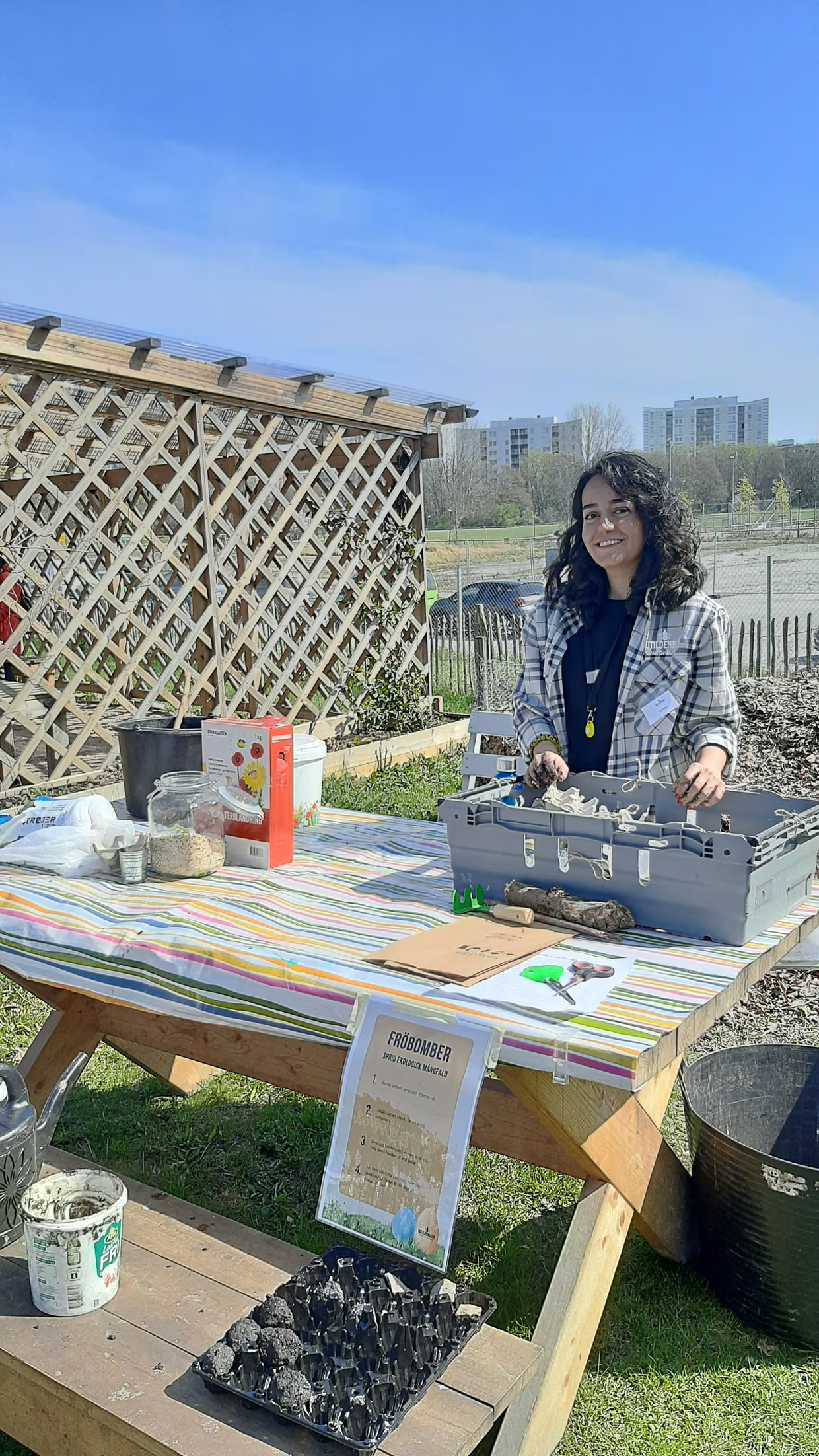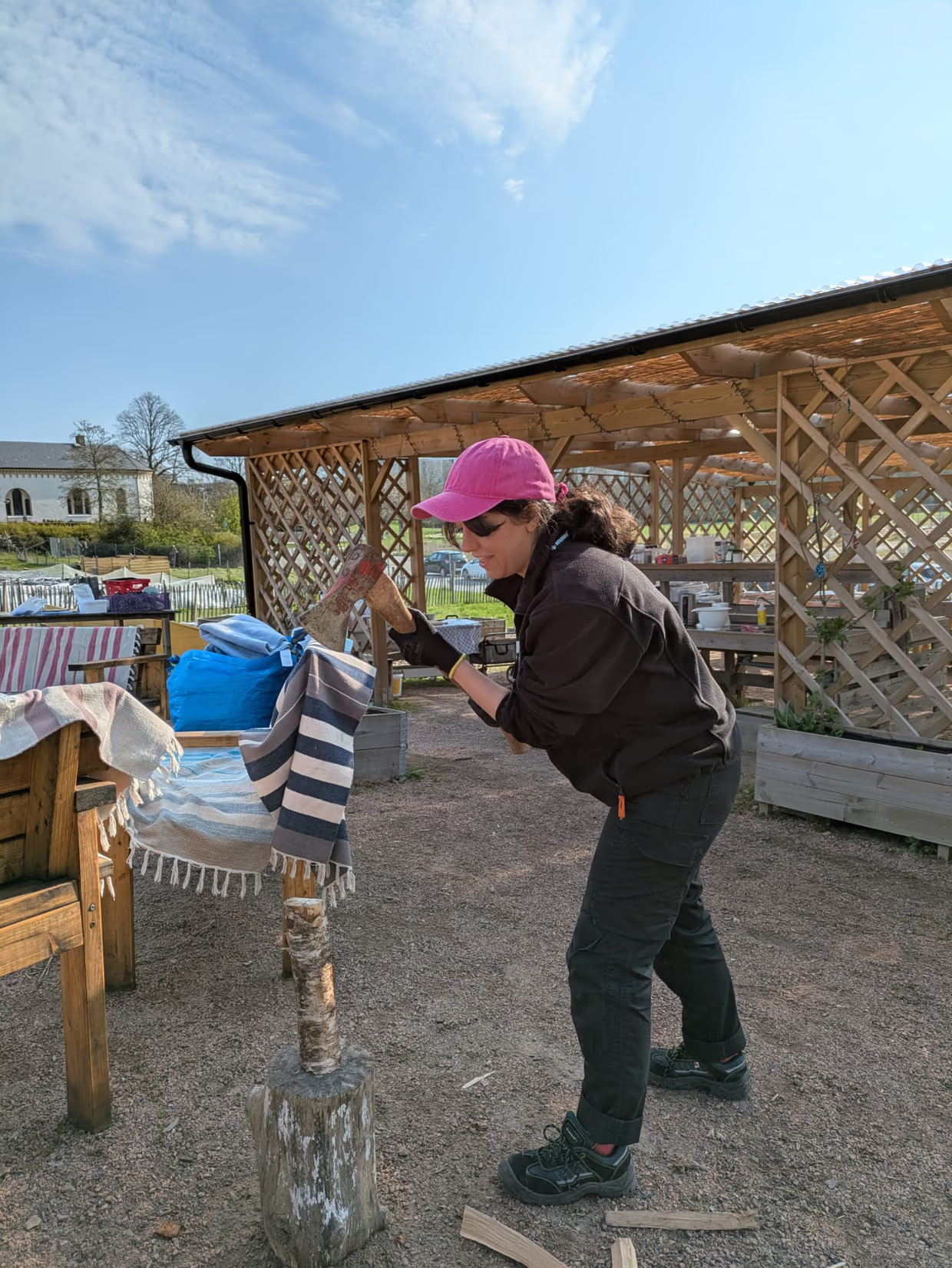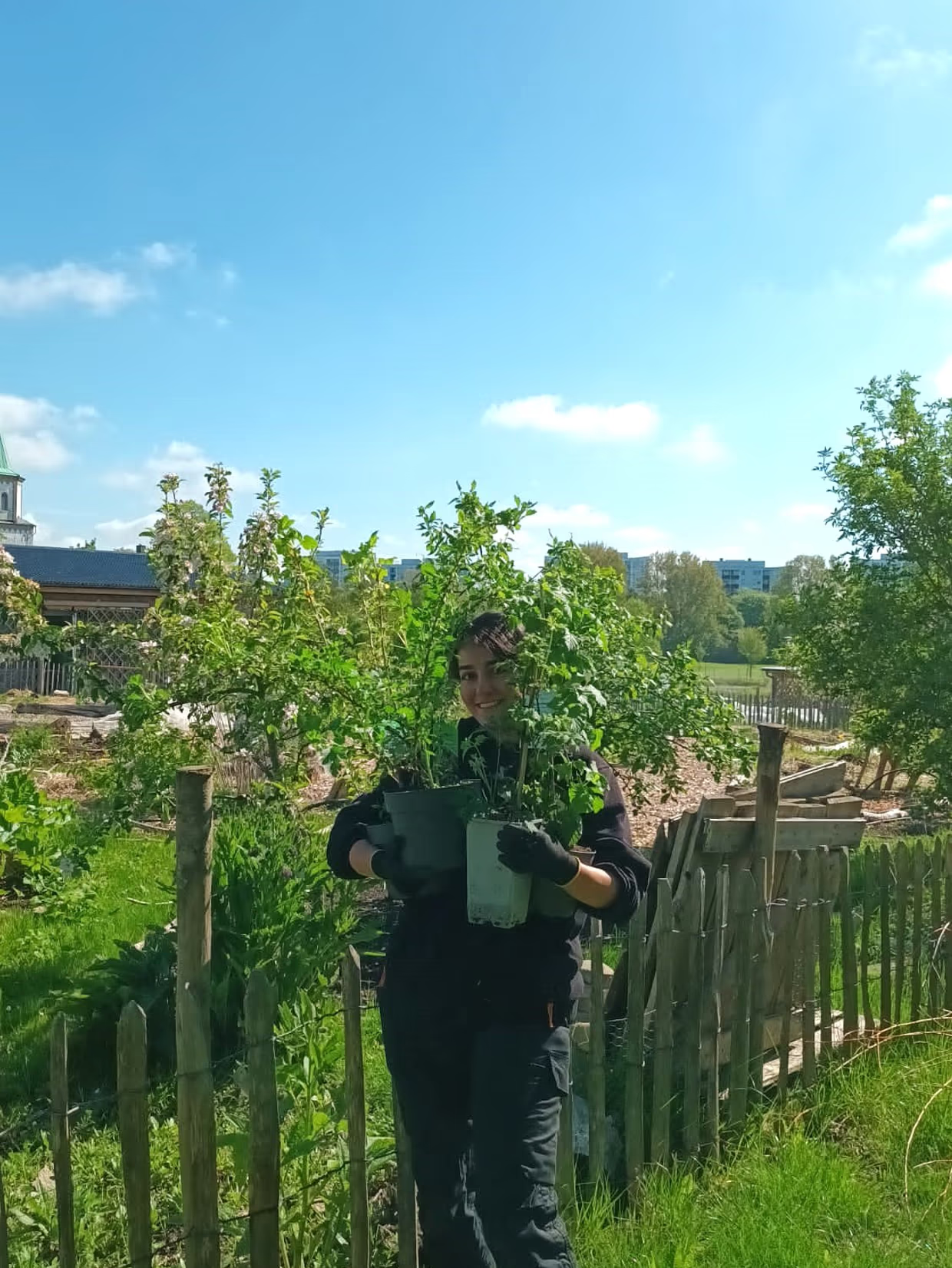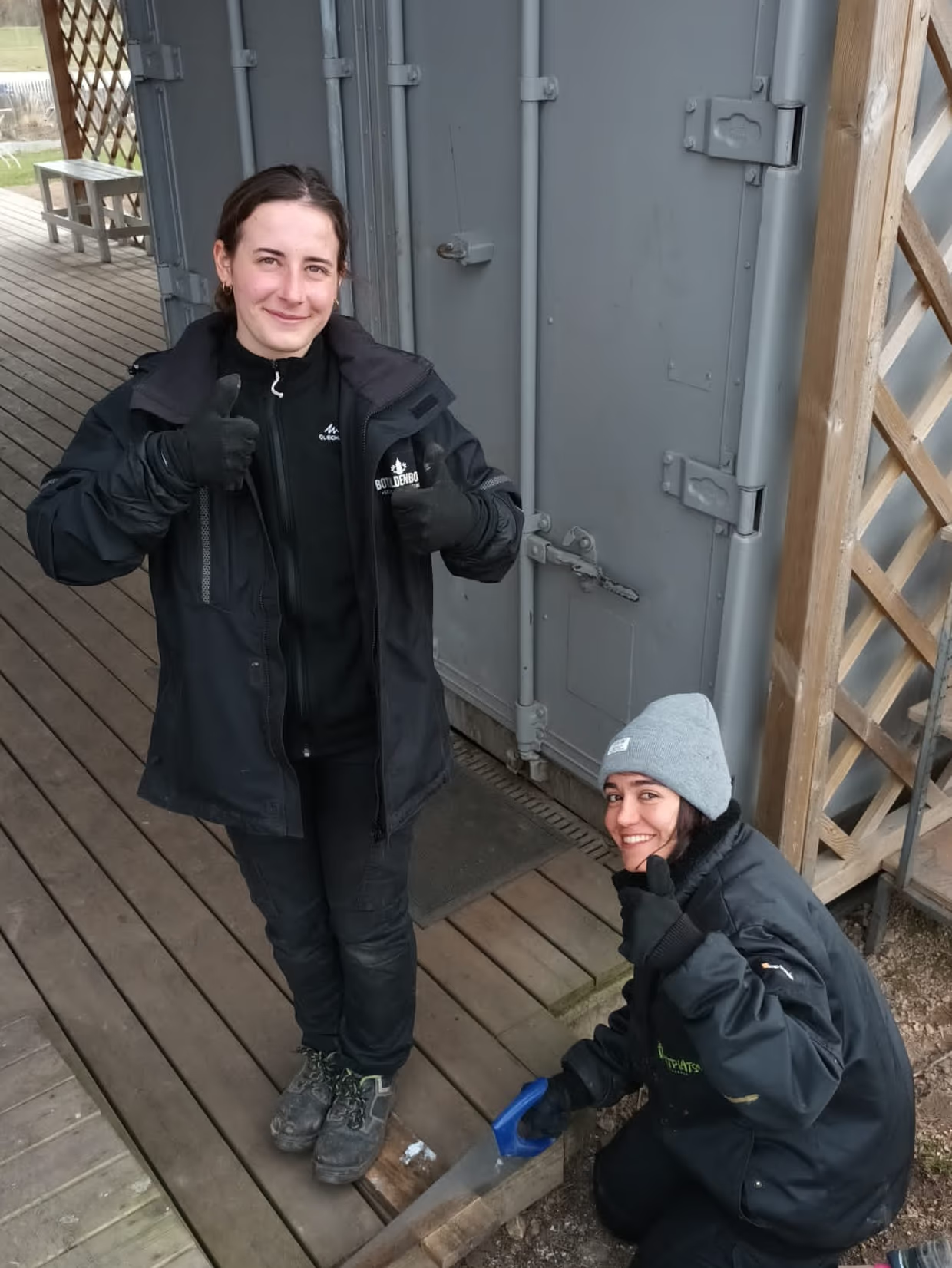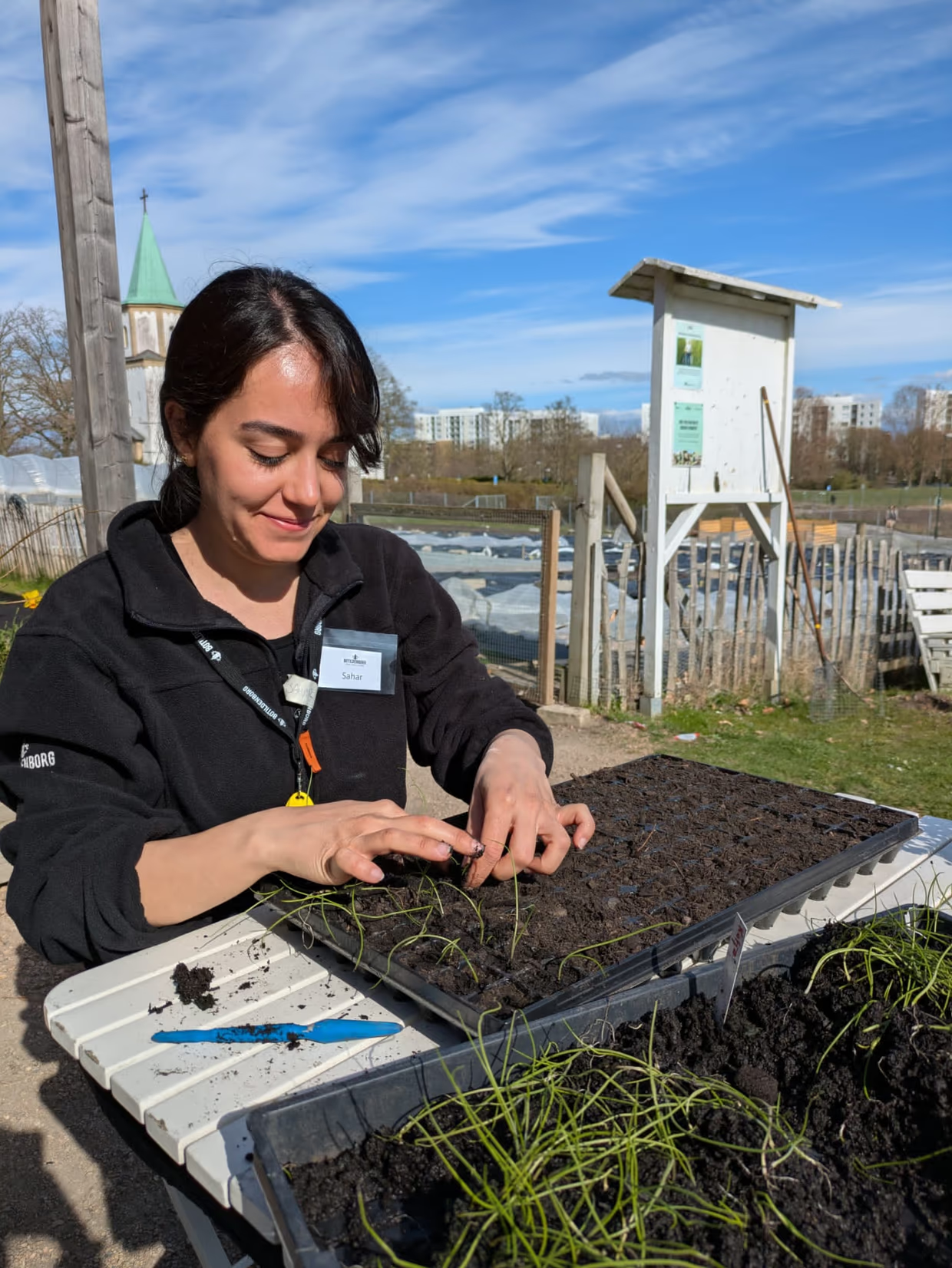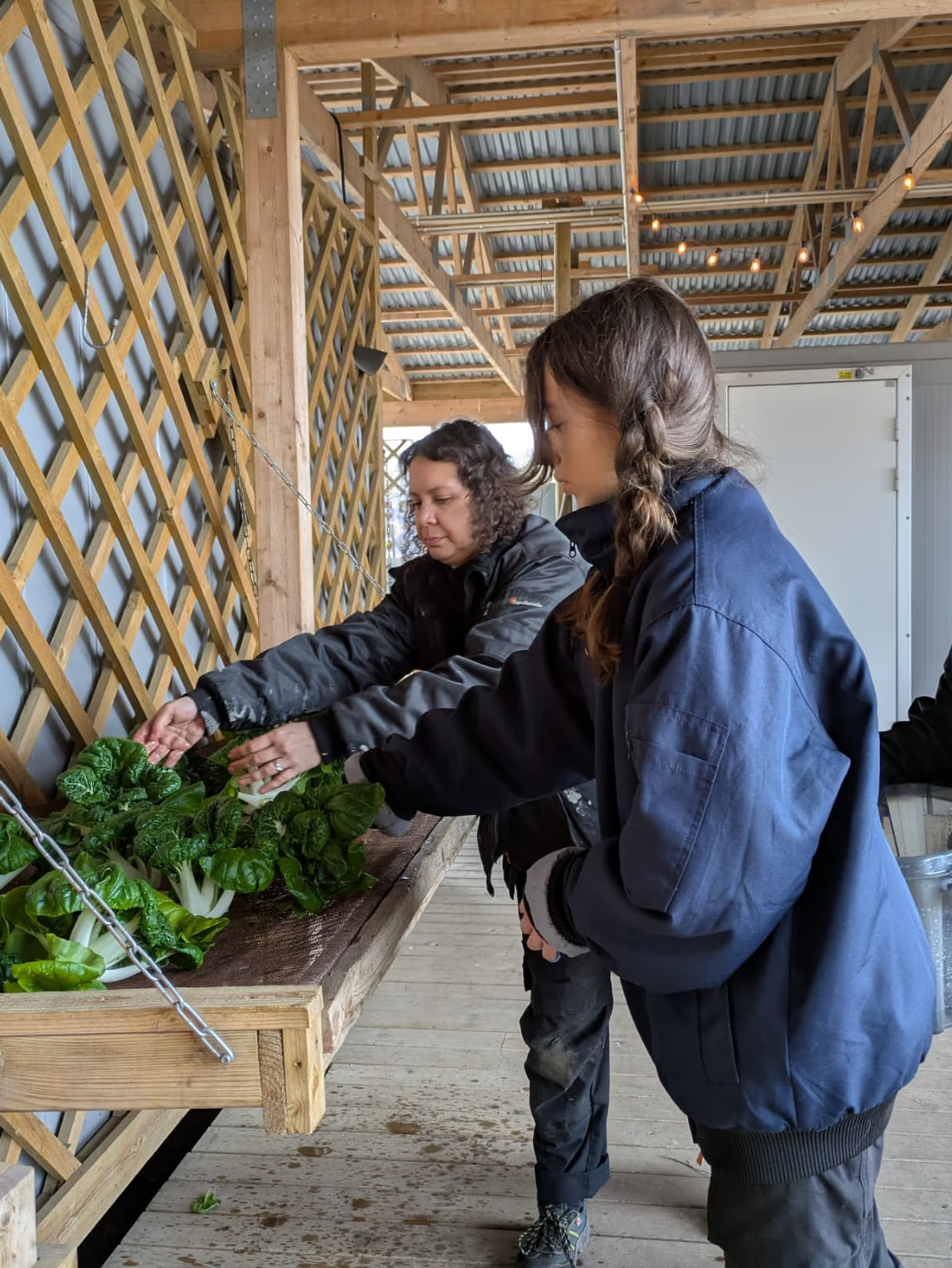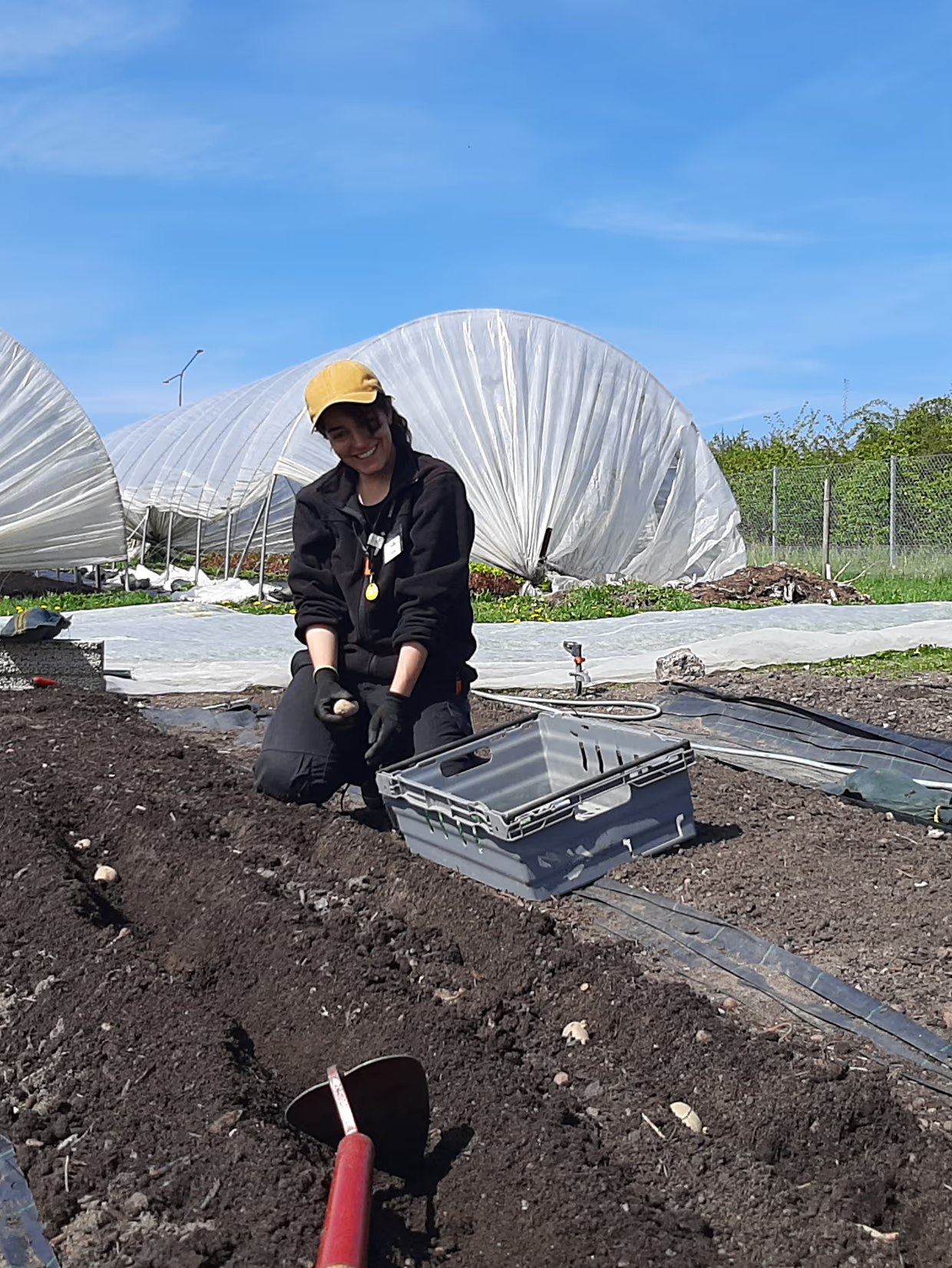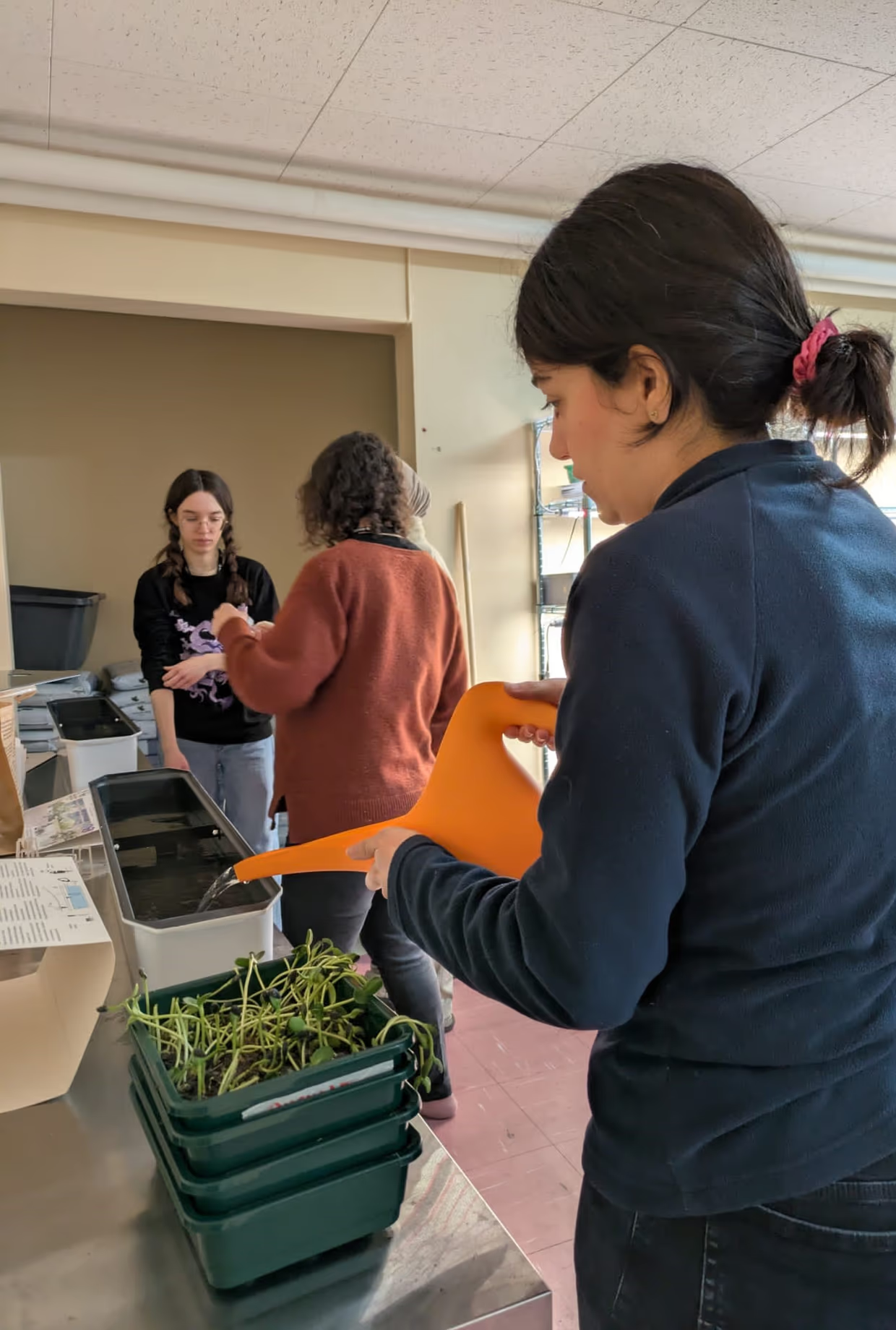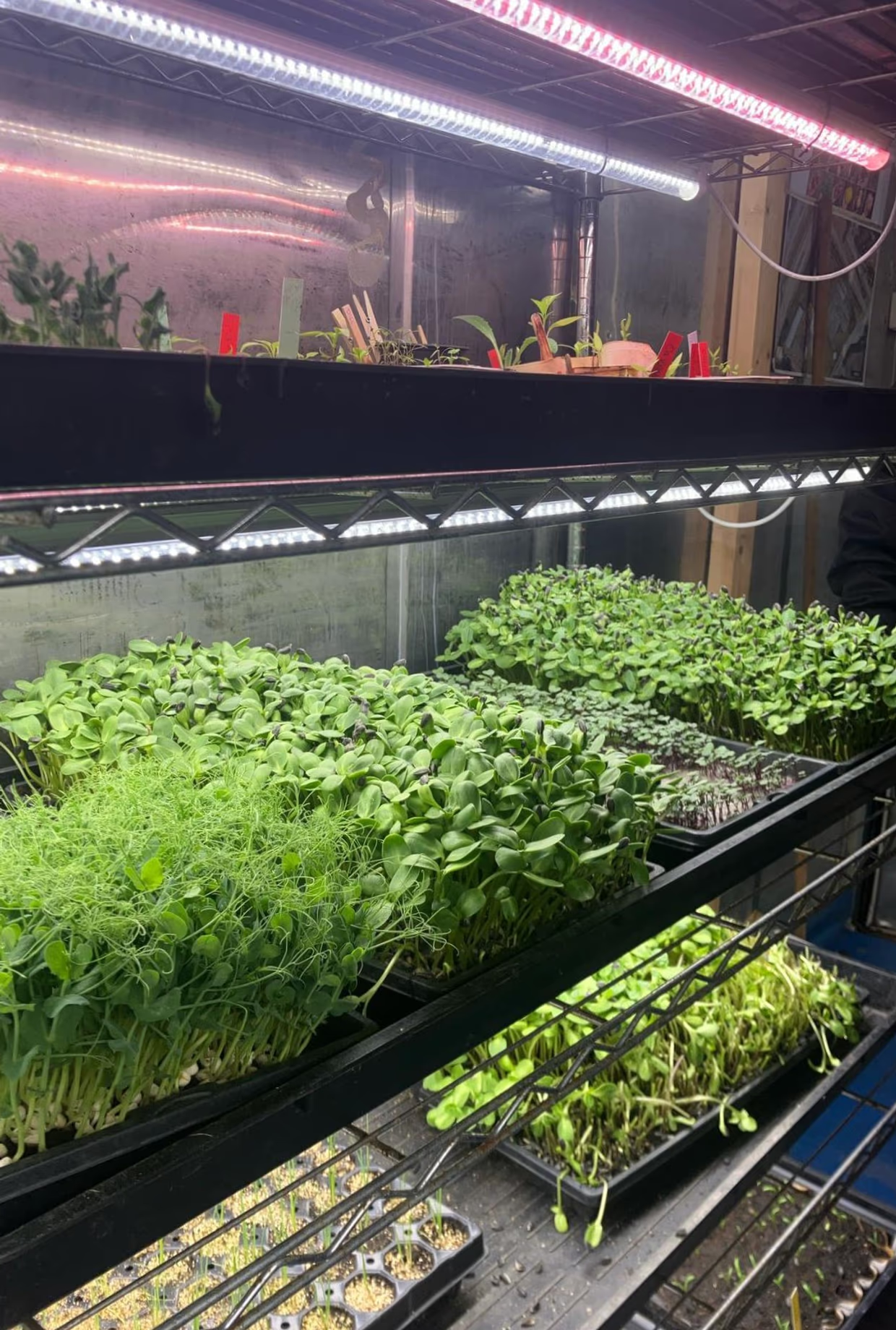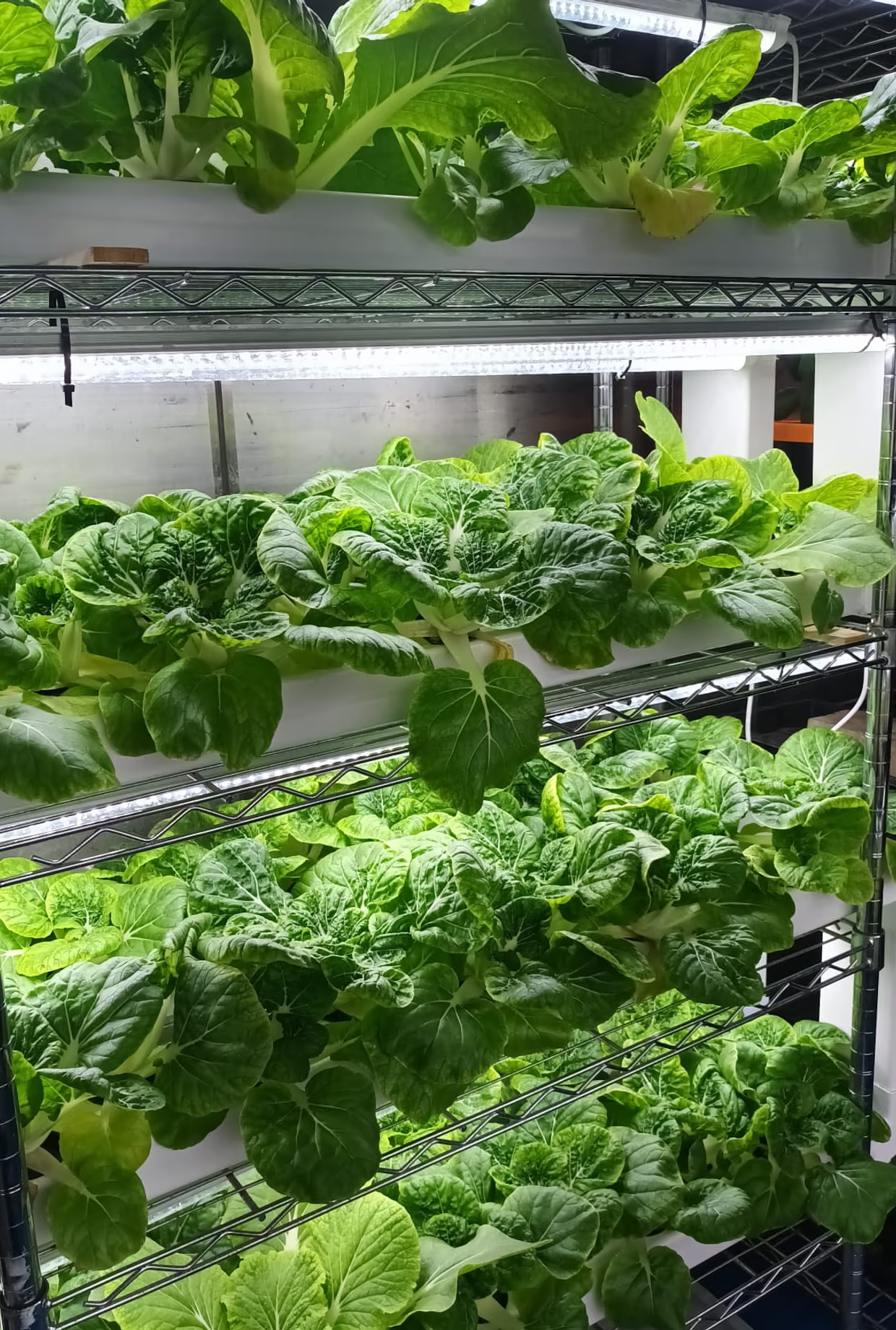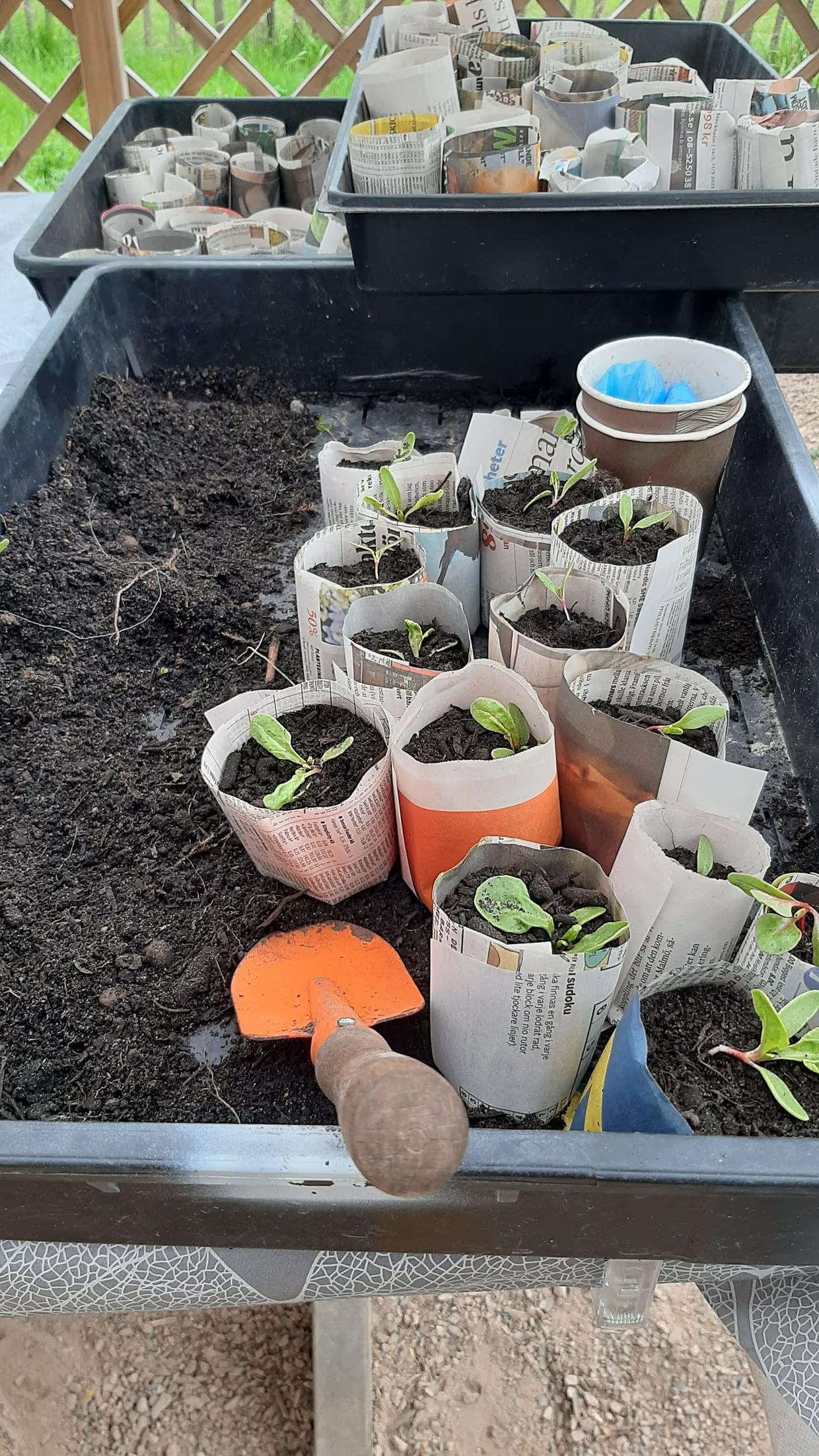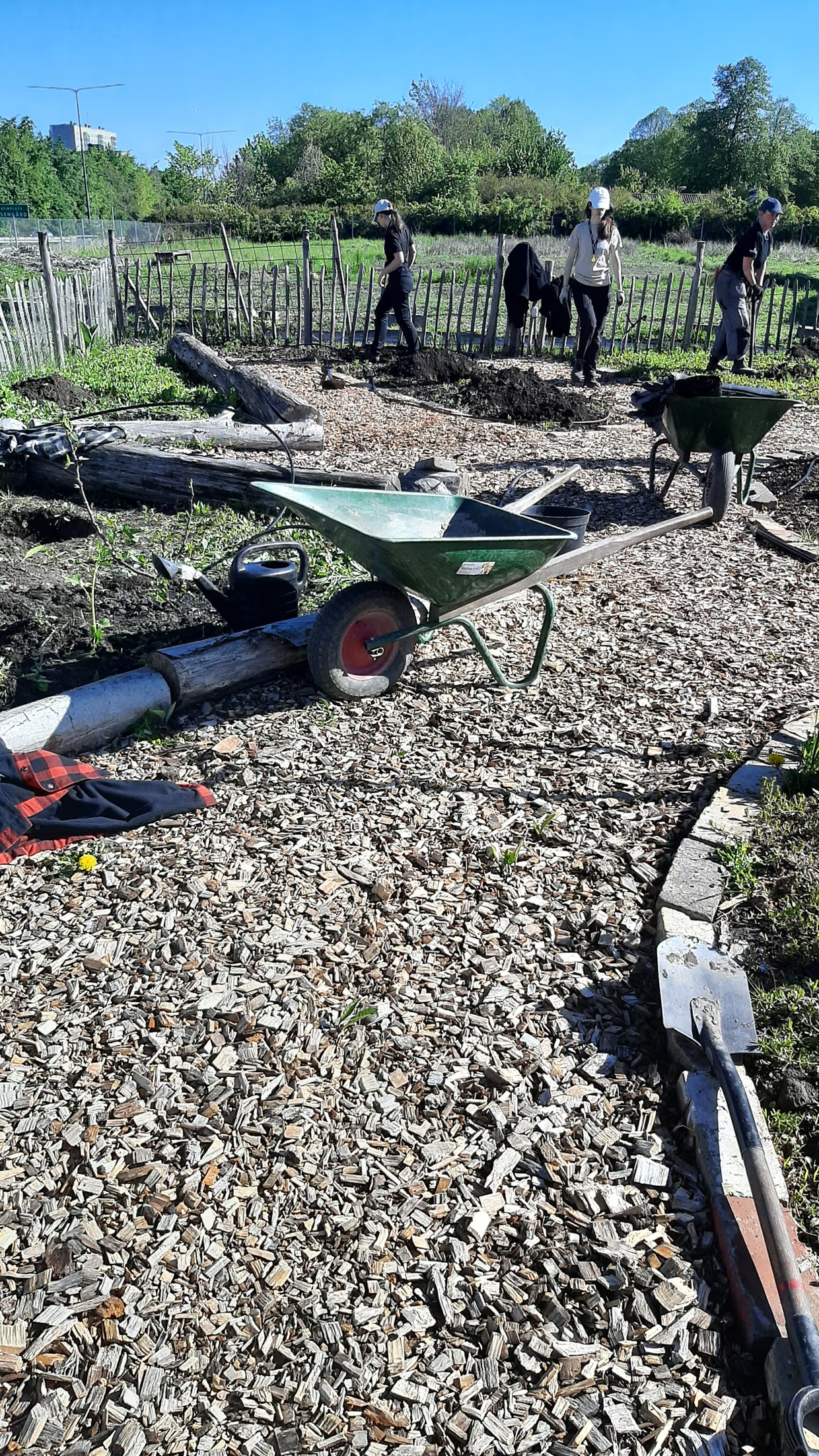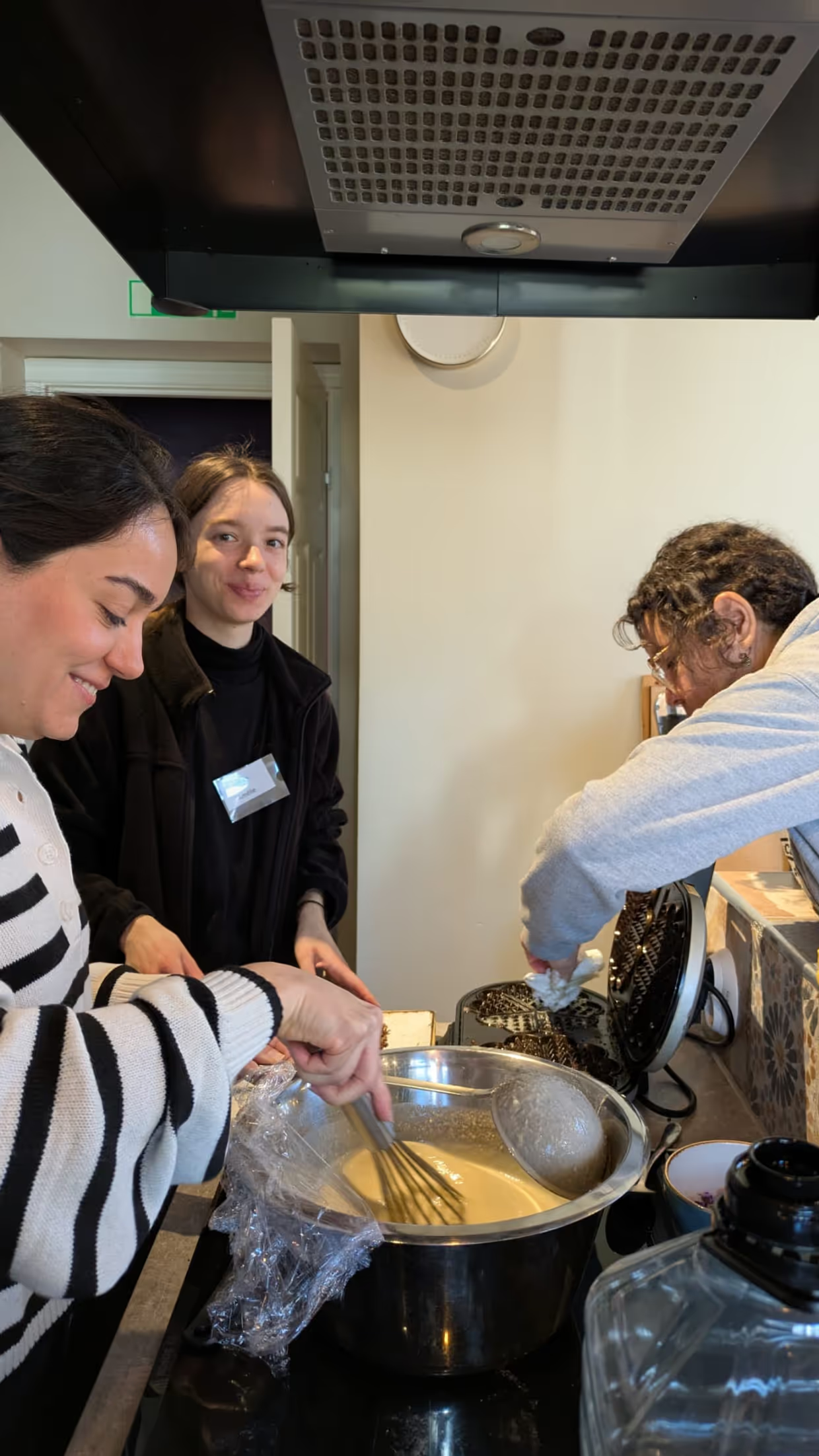Sahar Naeimi Darestani is a student from the Ecosystems and Natural Resources track of the Erasmus+ MSc in Geo-information Science and Earth Observation for Environmental Modelling and Management, GEM MSc.
As part of the programme, she started an internship at Botildenborg (Sweden) where she helped construct a Forest Garden, facilitated intergenerational gardening sessions, and created an interactive GIS map. Working with an international team, she applied her academic knowledge to practical sustainability projects.
Today, we interviewed Sahar to learn more about her experience studying GEM and her internship journey.
What organization are you doing your internship with, and how did you find this opportunity?
Botildenborg is a private organization, which is mainly a social garden and kitchen, and tries to make social changes with the help of Food and Farming. They work closely with Malmö University, Lund University, and SLU. I saw a post on LinkedIn about one of Malmö University's study visits to Botildenborg. Since I was working on Community Gardens for my thesis, I dug deeper and found out they also have an internship program.
What project are you working on and what is your role in it?
So, Botildenborg is a really dynamic place with a lot of different projects happening at the same time, and during my internship, I got to be involved in most of them. The main idea behind everything they do is using sustainable farming as a tool for social change.
I learned a lot about sustainable farming from seeding and planting to watering and dealing with pests naturally. One of the coolest parts was being part of the Forest Garden construction. A Forest Garden is kind of like a mini-ecosystem where different plants, trees, and shrubs grow together in layers, mimicking a natural forest, but it’s all edible and useful. It’s long-term thinking in farming.
One of the meaningful projects for me was being involved in the Odla Tillsammans project. It means "Grow Together" in Swedish, and it was basically social gardening sessions with seniors and kids. To bring two generations together. This project connects directly to my thesis topic on community gardens and well-being.
I also worked on a GIS project. I developed an interactive map of the garden (after digitizing the whole area) that helps the team keep track of what’s planted where and plan their farming activities more easily. So, I got to combine both the practical and tech sides of my background.
Are you applying what you learned at ITC during your internship?
I’m actually using quite a lot of what I learned at ITC, especially from the GEM program and all the GIS skills. for example, I digitized a drone image of the garden and turned it into a web-based interactive map, which definitely wasn’t as straightforward as it sounds! It took a mix of spatial data handling and coding to make it work.
Also, I took a course on ecosystem services at ITC, and that really helped shape how I see the garden, not just as a space for growing food, but as a place that supports biodiversity, social interaction, mental health, and more.
And when it comes to my thesis, my supervisors kept reminding me: "It’s not just about showing data, it’s about making sense of it." At ITC, I learned how to analyze and interpret well-being indicators, and being at Botildenborg made that real. I got to actually see what those numbers mean in people’s lives.
Is there something unexpected you’ve learned during your internship at Botildenborg?
I learned how simple it can be to bring people together and to encourage pro-environmental behavior. Gardening sessions with kids and seniors turned into moments of learning and connection; they were more curious, more respectful toward the garden, and cared for their environment.
What does a typical day at Botildenborg look like?
Honestly, there’s no such thing as a typical day at Botildenborg. For example, one entire day might be spent installing the drip irrigation system for the forest garden. Some days we had so much seeding and planting with different machines. Some days were spent trying to balance the pH and nutrient levels in the hydroponic system, which sounds simple, but trust me, they change too fast, too much! There are days all about social activities, like gardening with kids and seniors. And I had my GIS project days, where I’d be indoors working on the interactive map.
But no matter what kind of day it was, one thing stayed the same: Fika breaks, twice a day, every day. That was our little ritual, and it made even the busiest days feel grounded.
Are you working with an international team?
Yes! The whole team at Botildenborg is really international. Even though it’s a Swedish organization, there’s a lot of diversity, not just among the staff, but especially among us interns. We came from Iran (me), France, Venezuela, and Sweden, and it was such a nice mix of cultures and perspectives.
We actually shared a lot of traditions together, we celebrated Persian New Year, Swedish Easter, and made French crêpes. And especially in the garden, we all brought different knowledge based on our field of study and how agriculture works in our home countries.
How has this internship at Botildenborg shaped your ideas about your future career?
This internship really reminded me of the importance of my field of study. Sometimes, when you're deep into theory, it’s easy to lose sight of the bigger goal. But being here, working directly with people and nature, made it clear to me: I want my future work to have a real impact on people’s lives and on the environment.
I think at the core, that’s what most careers in sustainability or planning are aiming for. But experiencing it in action made me realize, whatever I do next, I want it to be something where I can have that real impact.
What skills do you feel have grown the most since starting your internship?
I’d say my teamwork skills really grew the most. Even when you had tasks that were technically “your responsibility,” you were never handling things completely on your own. We were always working as a team, supporting each other.
On the technical side, my GIS skills definitely leveled up. I have more experience working with ArcGIS Pro now, and specifically, I learned how to develop an actual GIS-based web map. It was really exciting to create a real-world application.
What has been the most rewarding or exciting part of your internship so far?
For me, the most rewarding part was realizing how easily you can share your knowledge about preserving ecosystems and natural resources, especially with children. Everything at Botildenborg was done in a sustainable way, and those mostly simple actions became learning moments for everyone involved.
Each garden had its own compost area, which showed how we avoid waste. We had worm hotels where we turned wet trash and remaining food into rich soil. We reused materials, like milk cartons and old newspapers, to make seed pots, which were both practical and a great way to show that sustainability doesn't need to be complicated or expensive. We used drip irrigation in almost every part of the garden to save water. We grew a wide variety of plants, including microgreens, to make the most of small spaces.
Just seeing how all these things came together, and how it was to pass them on to others, was really exciting. It made me feel like the things I’ve studied can actually make a difference in everyday life.
Any advice for future ITC students preparing for their internship?
I would say: Be open to trying new things. It’s a totally different experience to see how your knowledge actually works in practice. And have in mind that internships can be a chance to grow as a person and to challenge yourself.
Click here to learn more about the GEM MSc programme
More recent news
 Fri 10 Oct 2025ECO-MOSAIC: A new ESA-funded project to monitor biodiversity under Climate Change
Fri 10 Oct 2025ECO-MOSAIC: A new ESA-funded project to monitor biodiversity under Climate Change Wed 1 Oct 2025Erasmus+ funds the GEM Programme for 4 more intakes on its 21st anniversary
Wed 1 Oct 2025Erasmus+ funds the GEM Programme for 4 more intakes on its 21st anniversary Tue 22 Jul 2025In Memoriam: Dr. Abel Chemura
Tue 22 Jul 2025In Memoriam: Dr. Abel Chemura Mon 30 Jun 2025GEM Joint Event 2025
Mon 30 Jun 2025GEM Joint Event 2025 Fri 6 Jun 2025PhD candidate Novia Arinda Pradisty receives KNAW grant to research mangrove ecosystems
Fri 6 Jun 2025PhD candidate Novia Arinda Pradisty receives KNAW grant to research mangrove ecosystems


